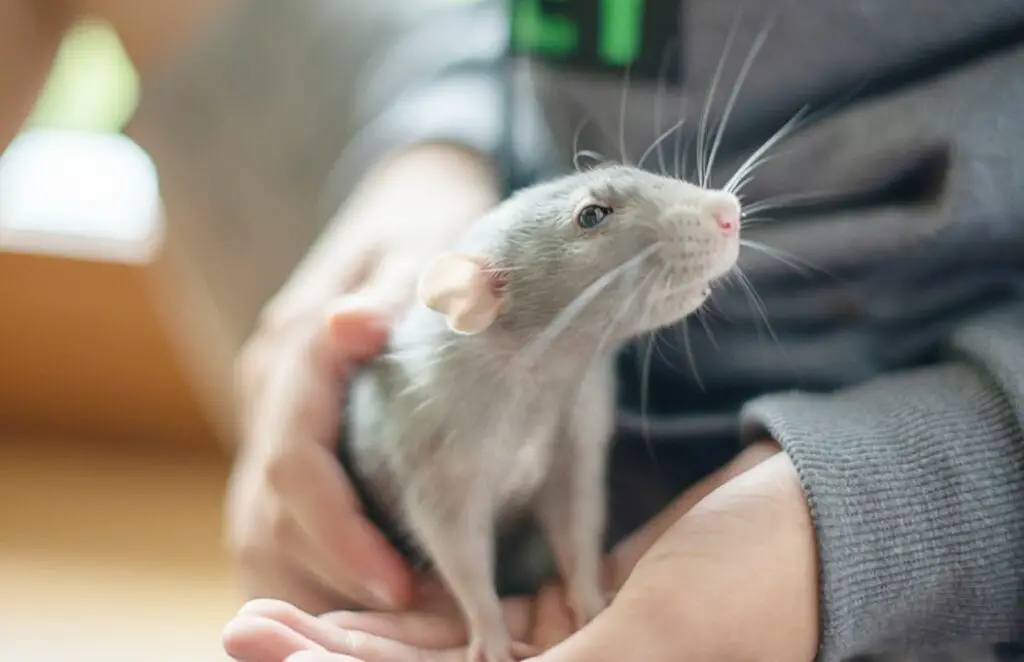As a rat owner, you probably know that maintaining a healthy weight in pet rats is crucial for their overall health and well-being.
But how much should pet rats weigh? In this blog post, we will explore the factors that determine a rat’s weight, the ideal weight range for pet rats, the risks of under or overfeeding a pet rat, and tips and tricks for helping rats maintain a healthy weight.

What factors determine a rat’s weight?
There are several factors that can influence a rat’s weight, including diet and nutrition, age and gender, and breed and genetics.
Diet and nutrition
One of the most important factors that influence a rat’s weight is their diet and nutrition. Rats require a well-balanced diet that is high in protein, low in fat, and rich in vitamins and minerals. A diet that is high in fat or low in nutrients can lead to weight gain and health problems.
Age and gender
Age and gender can also play a role in a rat’s weight. Young rats may weigh less than older rats, and male rats may weigh more than female rats due to differences in body size and musculature.
Breed and genetics
Finally, breed and genetics can also influence a rat’s weight. Some rat breeds are naturally smaller or larger than others, and some rats may have a genetic predisposition to obesity or other health problems.
What is the ideal weight range for pet rats?
The ideal weight range for pet rats can vary depending on several factors, including age, gender, and breed.
Male vs. female weight ranges
In general, male rats tend to be larger and heavier than female rats. The ideal weight range for male rats is typically between 400-600 grams, while the ideal weight range for female rats is usually between 250-450 grams.
Weight ranges for different rat types
Different rat types may have slightly different ideal weight ranges. For example, a standard-sized rat may weigh between 300-500 grams, while a dwarf rat may weigh significantly less.
How weight can vary depending on age
Weight can also vary depending on a rat’s age. Young rats may weigh less than older rats, and elderly rats may lose weight due to age-related health issues.
What are the risks of under or overfeeding a pet rat?
Feeding your pet rat too much or too little can have serious health consequences. Some of the risks of under or overfeeding a pet rat include:
Health problems associated with obesity
Overfeeding your pet rat can lead to obesity, which can increase the risk of health problems such as diabetes, heart disease, and joint problems.
Stunted growth and development from being underweight
Underfeeding your pet rat can lead to stunted growth and development, which can cause long-term health problems.
How to properly monitor and adjust a rat’s diet to maintain a healthy weight
To maintain a healthy weight in your pet rat, it is important to monitor their diet and adjust it as needed. You should provide your rat with a well-balanced diet that is high in protein and low in fat, and monitor their weight regularly to ensure that they are maintaining a healthy weight.
If your rat is overweight, you may need to adjust their diet or provide them with more exercise to help them lose weight.
What are some tips and tricks for helping rats maintain a healthy weight?
There are several things you can do to help your pet rat maintain a healthy weight and avoid health problems related to over or underfeeding.
Exercise tips and ideas for rats
Providing your pet rat with plenty of opportunities for exercise is essential for maintaining a healthy weight.
You can provide your rat with toys and climbing structures to encourage them to be active, and spend time playing with them to keep them engaged and active.
Choosing the right diet and food types for optimal health
Choosing the right diet and food types for your pet rat is also important for maintaining a healthy weight. You should provide your rat with a well-balanced diet that is high in protein and low in fat, and avoid feeding them foods that are high in sugar or salt.
How to address weight issues in pet rats
If you notice that your pet rat is overweight or underweight, it is important to address the issue as soon as possible. You may need to adjust their diet, provide them with more exercise, or seek veterinary care to rule out any underlying health problems.
Conclusion
In conclusion, maintaining a healthy weight in pet rats is crucial for their overall health and well-being. By monitoring their diet, providing them with plenty of exercise, and seeking veterinary care if needed, you can help your pet rat maintain a healthy weight and avoid health problems related to over or underfeeding.
- How Long Do American Eskimo Dogs Live? Important Factors and Care Tips - September 29, 2023
- Do American Bulldogs Need Grooming? Essential Tips and Care Guidelines - September 29, 2023
- Do Bengal Cats Enjoy Playing? Essential Tips for Keeping Them Active - September 29, 2023